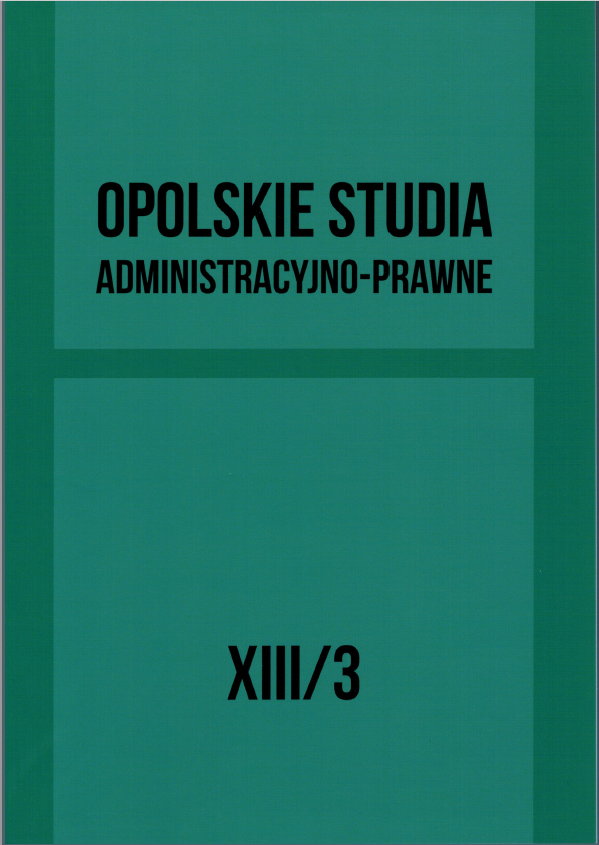Złośliwe niepokojenie a uporczywe nękanie – podobieństwa i różnice
Malicious disturbance versus persistent harassment – similarities and differences
Author(s): Małgorzata MarciniakSubject(s): Law, Constitution, Jurisprudence, Criminal Law
Published by: Uniwersytet Opolski
Keywords: persistent harassment; malicious disturbance
Summary/Abstract: Article 107 of the Violations Code penalizes malicious disturbance. The subject of this offence is characterized by a specific reason to act, which is harassment of another person. In 2011, the legislator introduced the crime of persistent harassment, also called stalking, into the Penal Code. It can be applied in the case of similar factual states as those relating to the above-mentioned offence. In contrast to the offence – as it was indicated in the justification of the project of the act – the reasons and motives for the offender to act on the ground of this offence are legally irrelevant. According to the concept of subjective-objective understanding of persistence, this notion is characterized not only by a long-lasting nature of the action, but also by the appearance of a certain intention in the psyche, which excludes the attitude of reconciliation. Here, the element of “ill will” on the part of the offender is emphasized. However, there arises the question whether this ill will should be understood as persevering in pertinacity, tenacity in harassing, frequent undertaking to behave in the way the offended person does not accept, which he/she clearly articulates and openly expresses, or as a malicious act motivated by the wish to tease, persecute, etc. If we are to accept that “ill will” manifests itself in tenacity and perseverance in pertinacity, while persistent harassment can be caused also by positive feelings, e.g., the wish to adore, love, then the difference between the petty offence (which can be committed merely with the intention to tease another person) and a misdemeanor covered by Article 190 a Par. 1 of the Penal Code is evident. Another difference between the above-mentioned types of prohibited acts is the result required to realize the statutory elements of crime. An effect of it is raising in the offended party a sense of threat or vital violation of their privacy, which is justified by circumstances. These features, like other elements of the misdemeanor under discussion were formulated in a way which raises numerous doubts of the interpretative nature, whereas the guarantee function of the Penal Law requires precision in formulating regulations.
Journal: Opolskie Studia Administracyjno-Prawne
- Issue Year: XIII/2015
- Issue No: 3
- Page Range: 93-108
- Page Count: 16
- Language: Polish

